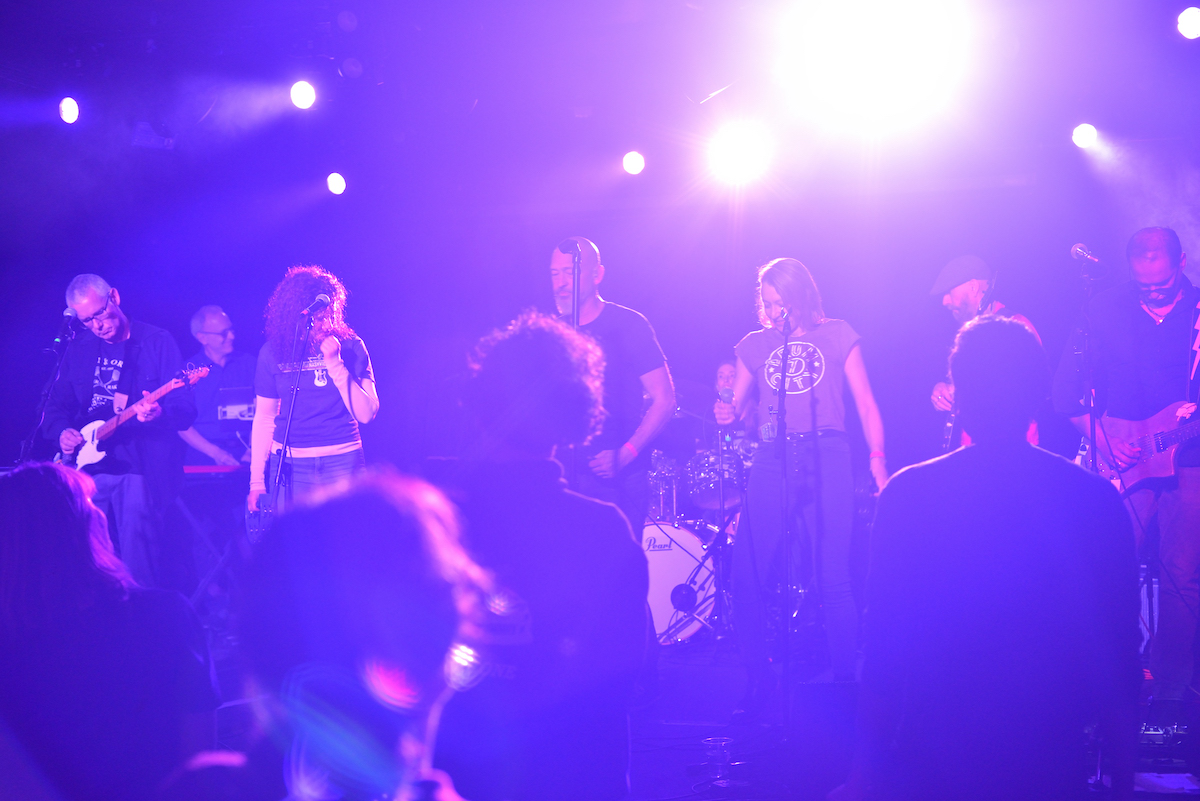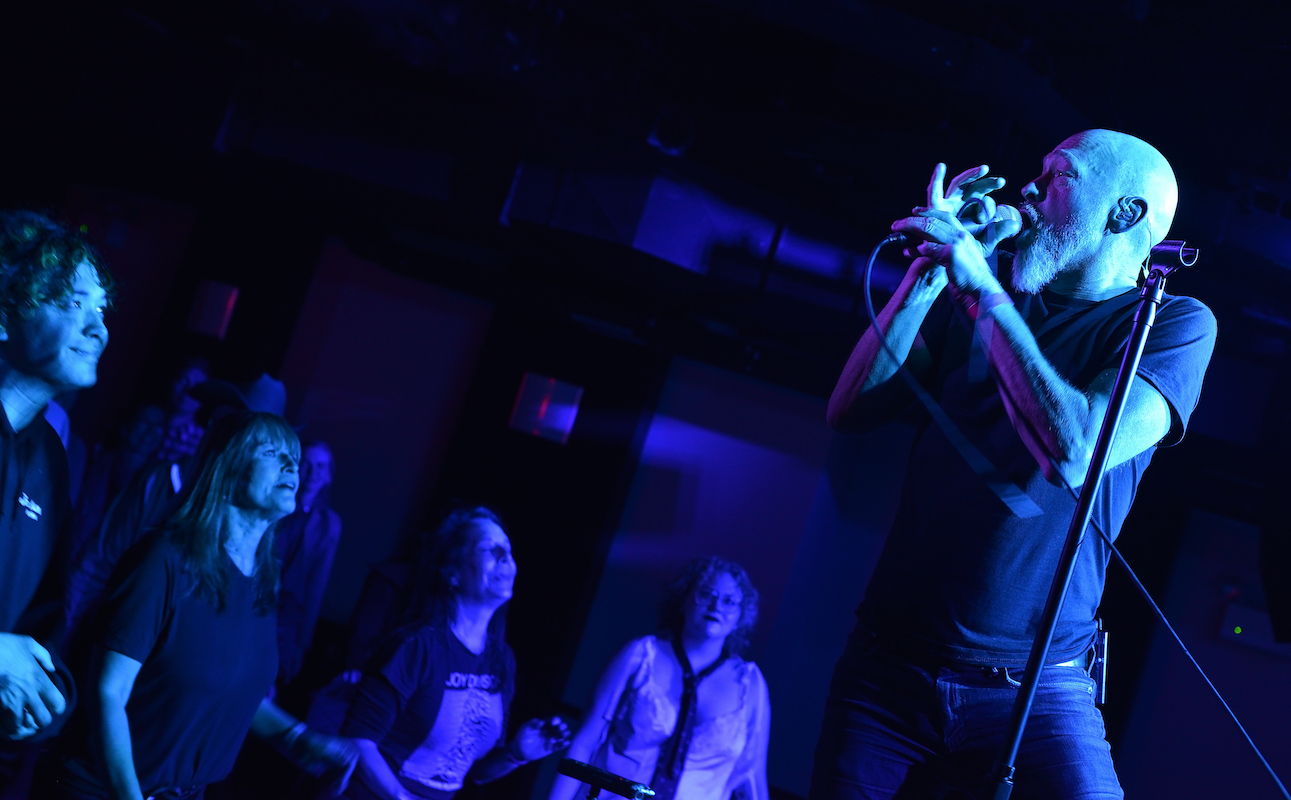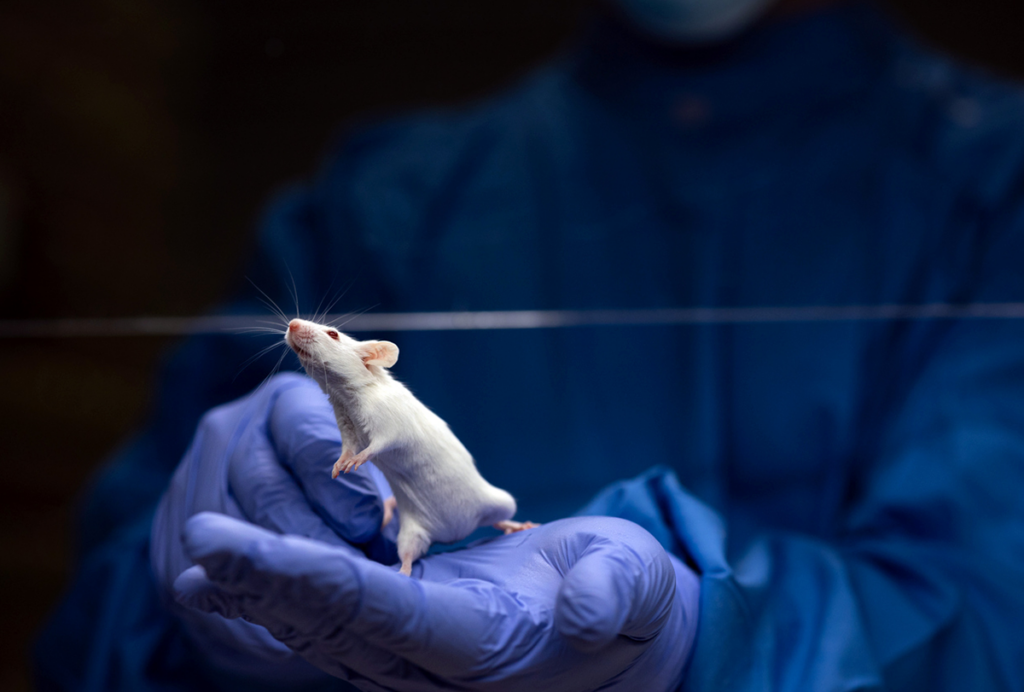It’s a Monday night in mid-November, and a posse of 10 neuroscientists has taken the stage in a dive bar tucked into Washington, D.C.’s wharf region.
The crowd consists of many fellow neuroscientists, some still wearing the dress shirts and loafers they donned earlier in the day to attend the annual meeting of the Society for Neuroscience, taking place about two miles north. The time for science is over — “there’s enough of that,” said Earl Miller, professor of neuroscience at the Massachusetts Institute of Technology and a member of the rock band Pavlov’s Dogz, in an interview before the show. Miller and his bandmates, outfitted in muscle tees and combat boots, look decidedly more punk than polished.
Just after 9 p.m., the lights dim, and Tim Bussey, professor of physiology and pharmacology at the University of Western Ontario, in London, Canada, and lead singer of the band, approaches the mic and tells the audience to repeat after him.
“Hey, ho, let’s go!” he shouts. After two and a half days of intense conferencing, the audience is ready to shout back.
F
or many in the audience, this is not their first Pavlov’s Dogz show.The band was born out of serendipitous socializing during the 2015 meeting of the Memory Disorders Research Society in Cambridge, England. Bussey, who has sung professionally in a ska band, hosted an open mic night at a black box theater. A collection of researchers who dabble as musicians “came up and made noise,” says Brad Postle, professor of psychology at the University of Wisconsin-Madison, who was at that event with a borrowed guitar. He, Bussey and two others — Charan Ranganath, professor of psychology at the University of California, Davis, on guitar; and Joel Voss, professor of neurology at the University of Chicago in Illinois, on drums — had so much fun that they decided to jam a bit more formally the following year. Miller joined on bass after some discussion over Facebook. They christened the group Pavlov’s Dogz, a nod to their shared interest in memory.
At the next meeting, they added Daniela Schiller, professor of neuroscience and psychiatry at the Icahn School of Medicine at Mount Sinai in New York City, as another drummer. Paula Croxson, adjunct assistant professor of neuroscience in the same department, who also works as a senior producer for The Story Collider, brought her flute and vocals.
Pavlov’s Dogz – Pretty Vacant
Union Stage DC 11-13-23#SfN23 #SfN2023 pic.twitter.com/ogZ150EdPM— Earl K. Miller (@MillerLabMIT) November 16, 2023
Since then, the group has grown to 10, adding in other neuroscientists across different locations and areas of research: Ken Paller (keyboard), professor of psychology at Northwestern University in Evanston, Illinois; Kari Hoffman (vocals), associate professor of psychological sciences at Vanderbilt University in Nashville, Tennessee; and Jessica Grahn (keyboard), associate professor of psychology at the University of Western Ontario — the only member who has a degree in music, as Bussey pointed out on stage.
Pavlov’s Dogz play “skinny-tie rock” — post-punk music with reggae influence — as well as other punk genres, covering songs from artists such as The Stooges, The Pixies, Elvis Costello and Joy Division. (In perhaps the most scientific of the Dogz’s acts, Postle once made a histogram of the years that each of the songs on their set list came out and found that the mode was 1978.)
They typically perform two or three times a year now, at the Society for Neuroscience in the second half of the year and at the Cognitive Neuroscience Society meeting in the first. Sometimes they also play alongside other neuroscientist-fronted bands, such as The Amygdaloids, made up of New York University scientists, and The Shrinks, a group of Mount Sinai psychiatrists. Unlike those bands, which are both based at their band members’ institutions, the Dogz are spread across North America. To plan their shows, they squabble over a set list on Slack and then meet up a day or two ahead of time for a few intensive rehearsal sessions — 12 hours in total, Croxson says, before going on stage in D.C., for instance.
T
he D.C. show is about the 12th for Pavlov’s Dogz. “It’s part of the neuroscience community tradition now,” says David Somers, professor of psychological and brain sciences at Boston University in Massachusetts, who attended the performance.





